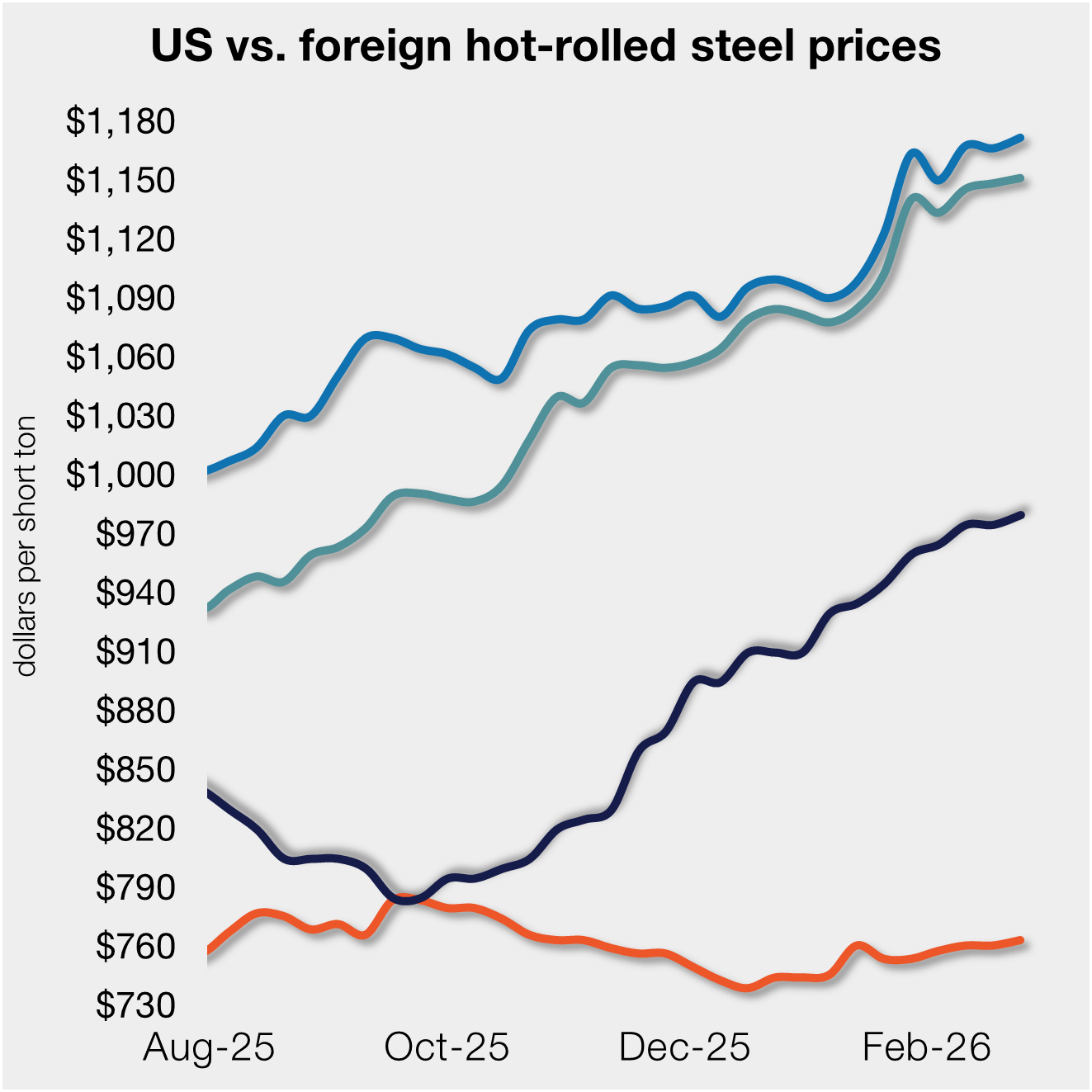Prices

July 1, 2014
LME Zinc Spot Prices Hit $1.00 Per Pound
Written by John Packard
For those buying coated products, zinc prices have been rising and by the end of the month of June were reported by the LME to be $1.0045 per pound. This is the first time zinc has exceeded $1.00 per pound since September 2011 just prior to the adjustment of the galvanized coating extras in January 2012.
In late 3rd quarter 2011 the zinc spot prices peaked at just over $1.10 per pound. This was the time period when the mills announced they would be adjusting their coating extras.
Steel Market Update does not believe there is any danger of the extras being revised higher unless we begin to see spot zinc pricing over the $1.10 per pound level and climbing for an extended period of time. None-the-less, galvanized, galvanneal and Galvalume (ZAM, Galfan) buyers need to pay attention to the price of zinc over the coming weeks and months.
Aluminum prices has been much more stable closing the month of June at $.8345 per pound which is only marginally higher than what we have seen for the metal over the past few months.







